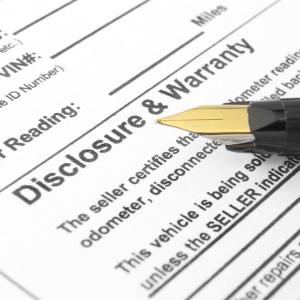
Key Steps for Selling Your House in Texas

Selling a house in Texas involves several important steps to ensure a successful sale. Here’s how you can navigate the Texas real estate market:
- Research the Market: Look at current Texas real estate market trends to understand property values and demand.
- Set a Competitive Price: Use online tools or work with a real estate professional to price your home competitively.
- Prepare Your Home: Make repairs and improvements to boost curb appeal.
- Market Your Property: Use online listings, social media, and traditional advertising to reach buyers.
- Negotiate Offers: Be ready to discuss offers and terms with potential buyers.
- Finalize the Sale: Complete all paperwork and legal requirements to close the transaction.
What Documents You Need for a Successful Sale?
Having the right documents is crucial for a successful home sale in Texas. Here are the essential ones:
- Property Deed: Proves ownership and must be given to the buyer.
- Seller’s Disclosure Notice: Lists known property defects.
- Title Report: Ensures no liens or claims on the property.
- Purchase Agreement: A contract between you and the buyer with sale terms.
- Listing Agreement: Contract with your real estate professional outlining their duties.
- Real Estate Contract: Details the terms and conditions of the sale.
- Mortgage Payoff Statement: This shows what you owe on your mortgage.
- IRS Form 1099-S: Reports the sale to the IRS.
- Warranty Deed: Transfers legal ownership to the buyer.
Why are these documents essential for selling your house?
These documents are necessary to follow real estate laws, verify ownership, handle taxes, and protect both parties. Having them ensures a smooth transaction.
How do you organize these documents for a seamless process?
Use a checklist to track each document and keep them organized and ready. This reduces stress and keeps the process moving smoothly.
Do You Need a Real Estate Attorney in Texas?

Though not required, hiring a real estate attorney in Texas can be very helpful. They offer:
- Legal Advice: Help you understand legal terms and processes.
- Contract Review: Ensure agreements comply with Texas laws.
- Negotiation: Assist in securing favorable terms.
What roles do attorneys play during the home sale?
Attorneys protect your legal interests, draft contracts, and represent you. Their expertise helps manage disputes and ensures compliance with laws.
How can an attorney protect your interests?
A real estate attorney helps resolve disputes, ensures transactions meet legal requirements and maintains confidentiality.
What is a Seller’s Disclosure Notice?

A Seller’s Disclosure Notice is a key document in Texas real estate transactions. It informs buyers about property defects and promotes transparency.
Why is the disclosure notice mandatory?
Texas law requires this notice to protect buyers and ensure honesty in transactions.
How does it impact the selling process?
A disclosure notice speeds up transactions and fosters good relations between buyers and sellers by building trust and reducing liability.
Preparing Your Home Sale Strategy
How to Price Your Texas Home Effectively?

Setting the right price for your Texas home is key to a successful sale. Here’s how you can do it:
- Understand Market Trends: Look at current real estate trends in Texas. A good real estate professional can help you with this information.
- Get an Appraisal: Have your home appraised. An appraisal report gives an unbiased idea of your home’s value, helping you pick a fair list price.
- Use Texas Real Estate Forms: Ensure all required Texas real estate forms are filled out correctly. These documents make the sale process smoother.
- Conduct a Comparative Market Analysis (CMA): Compare your home to similar ones nearby to see how they are priced. This helps you set a competitive price.
- Prepare Home Sale Documents: Gather important documents like past appraisal reports and property tax records. Having these on hand will make selling easier.
Is a Home Inspection Necessary Before Listing?
A home inspection can improve your selling process in many ways:
- Identify Issues Early: A home inspection can uncover problems that might scare away buyers. Knowing the inspection results ahead of time helps you fix issues.
- Inspection Report details your home’s condition, including termite and radon inspection results. It’s crucial for showing the quality of home ownership.
- Inspection Contingency Form: Many sales agreements include this form. It lets buyers back out if major issues are found. A clear inspection report can increase buyer confidence.
Should You Make Repairs Before Selling?
Deciding on repairs can affect how appealing your home is to buyers:
- Home Improvements: Think about making improvements or fixing obvious issues. These can attract buyers and justify a higher list price.
- Repair Receipts: Keep records of any repairs you’ve made. Show these to buyers as proof of maintenance.
- Home Warranty Information: Offering a home warranty can assure buyers that they will be covered for future repairs. It covers unexpected issues after the sale.
- Home Sale Documents: Include details about any repairs in your sale documents. Being honest about repairs builds trust with buyers.
Following these tips can improve your chances of selling your home successfully. For expert advice tailored to your situation, contact “Sell My House Fast Now.”
Navigating the Sale Process
What Role Does a Title Report Play in Selling?
A title report is very important when selling real estate. It shows who legally owns the property and identifies any possible problems, like unpaid debts or ownership disputes. Understanding this report helps sellers and buyers spot common issues that might cause delays, such as unresolved mortgage liens or easements. Real estate laws require clear ownership before a sale can go through.
When you are ready to close the deal, gather all necessary escrow documents. These papers and a solid title insurance policy protect everyone in case any unexpected title problems arise later. Starting with clear ownership makes selling a property much smoother.

How Does a Comparative Market Analysis Assist in Selling?
A Comparative Market Analysis (CMA) helps sellers determine market trends and set a fair price for their property. A CMA gives you a good idea of what your home is worth by looking at similar homes in your area. This analysis considers similar properties’ location, size, and recent sales.
Working with a real estate professional can be a big help since they know how to conduct a thorough CMA. They can also explain the difference between a CMA and an appraisal. While both estimate property value, appraisals are often more formal and used by lenders. A well-done CMA helps you set a competitive price, increasing your chances of a quick sale.
How to Handle Offers and Negotiations?
Handling offers and negotiations well is crucial for a successful sale. Start by carefully reviewing each offer and looking at the price and the buyer’s terms. Each offer includes an earnest money receipt, showing the buyer is serious about the purchase agreement.
During negotiations, keep communication open. Be ready to respond to counteroffers and make adjustments that work for both sides. A detailed real estate contract is key, covering everything from the purchase price to any conditions.
Once negotiations are complete, finalize the terms in a binding purchase agreement. This sets up a smooth closing process. Double-check the closing statement to make sure all financial details are correct. Good negotiation leaves both the buyer and seller happy, leading to a successful closing.
By following these steps, you can confidently manage the property sale process. If you need more help, contact professionals who can guide you.
Closing the Deal on Your Home
What Happens During the Closing Process in Texas?
In Texas, closing a home sale involves several important steps. Here’s what happens:
- Closing Statement and Settlement Statement: These documents lay out all the financial details of the sale, including the purchase price and any tax or prepaid expense adjustments.
- Property Tax Records and Loan Payoff Information: Ensure property taxes are current and you have the right loan payoff details to clear any mortgage balance.
- Title Report and Deed: The title report confirms who legally owns the property and if there are any claims against it. The deed officially transfers ownership to the buyer.
- Real Estate Contracts and Escrow Documents outline the sale terms and verify that all sale conditions are met before money is transferred.
- Power of Attorney for Closing: If you can’t be there in person, a power of attorney allows someone to sign documents for you.
How do you Transfer Utilities and Manage Final Expenses?
As you wrap up your home sale, manage utilities and expenses with these steps:
- Utilities Transfer Documents: Contact utility companies to transfer or end services by the closing date.
- Final Walkthrough Checklist and Inspection Contingency Form: Ensure everything agreed upon in the contract is complete. Use the inspection contingency form for any repairs and agreements.
- IRS Form 1099-S and Seller’s Net Sheet: IRS Form 1099-S reports the home sale to the IRS, while the seller’s net sheet shows your expected financial return after the sale.
When to Release Possession of the Property?
Knowing when to hand over the property is key:
- Purchase Agreements and Tenant Lease Agreements state when the buyer takes over. If you have tenants, their lease agreements must be followed or transferred.
- Occupancy and Bill of Sale: Set the move-in date with the buyer. The bill of sale may include items sold with the home, like appliances or furniture.
- Easement Agreements and Real Property Affidavit: All easement agreements should be disclosed as they can affect property use. A real property affidavit confirms details about the property’s condition.
- Deed: The final step is giving the deed to the new owner and completing the ownership transfer.
By following these steps and preparing all necessary documents, you can ensure a smooth closing process. If you need help, contact Sell My House Fast Now for expert guidance.
How Might Selling Affect Your Taxes?
Knowing how it affects your taxes can help you plan better when you sell your house. Here’s what to keep in mind:
- Tax Obligations: You might have to pay capital gains tax on the profit from selling your home. Make sure to check if this tax applies to you.
- Capital Gains Tax Implications: If your home sold for more than you paid, you could owe capital gains tax. But you might not have to pay if you have lived there for two of the last five years. You can exclude up to $250,000 of gain if single or $500,000 if married filing jointly.
- IRS Form 1099-S: After selling your home, you may get IRS Form 1099-S, which shows how much you made from the sale. Check that it’s correct since you’ll need it when reporting income to the IRS.
Understanding these points lets you handle your tax obligations properly after selling your home.
What to Do After Selling Your House?

Once your house is sold, managing your money well is key. Here’s how to do it:
- Manage Finances: Pay off any debts, like your mortgage, to see how much money you made from the sale.
- Financial Planning: Talk to a financial advisor to plan for now and the future. Think about paying off high-interest debt or investing in retirement savings.
- Reinvestment Options: Reinvesting the money can be a good move. You might buy another property, invest in stocks, or try other options. Each has risks and rewards, so choose based on what fits your goals.
These steps can help keep your finances strong after selling your house.
How Can You Ensure a Positive Experience for Buyers?
Making sure buyers have a good experience is important. Here’s how to help them feel satisfied:
- Handle Inquiries Efficiently: Answer buyer questions quickly and clearly. Good communication builds trust.
- Feedback and Follow-up Strategies: Ask buyers for feedback after a visit. Use their ideas to get better. Sending thank-you notes or surveys can build relationships and show you care about quality service.
Focusing on these areas can improve the experience for buyers and lead to positive recommendations.
These details apply to all of Texas, including cities like Houston, Irving, Dallas, Arlington, and Fort Worth, as well as their surrounding areas. For additional assistance or specific inquiries, call us at (800) 467-0003. Visit our website, Sell My House Fast Now, for more information and a full description of our services.
FAQs:
What are the key documents required when selling a house in Texas?
To sell a house in Texas, you need important documents like the deed, tax certificate, property survey, and seller’s disclosure notice. If your home is part of an HOA, you might also need a resale certificate and occupancy certificate.
How can I ensure I have all the necessary documents for my FSBO sale?
Do thorough research or talk to a real estate expert to determine which documents you need, like a homestead exemption application or financing addendum. A lawyer can help make sure you have everything covered.
Are there any specific inspections I should consider before selling my home in Texas?
Yes, consider getting a radon inspection, septic system, and well water test results. These can address buyers’ concerns and help ensure a smooth sale.
What disclosures are important when selling property in Texas?
You must disclose things like the floodplain status and mineral rights. These disclosures are important for transparency and to avoid legal problems later.
How do mineral rights affect a home sale in Texas?
Mineral rights can impact your sale, especially if they are separate from the property. Disclose these details to buyers to prevent disputes.
What role does a survey of property play in selling a house?
A survey shows the property’s boundaries and helps resolve disputes about shared spaces. It reassures buyers and is often required by lenders.
Why might a buyer request a zoning compliance letter?
Buyers ask this letter to ensure the property follows local zoning laws, which can affect future use or renovations. It’s an important document that makes buying easier.
Should I hire a real estate company, or can FSBO be successful in Texas?
FSBO can work, but you must handle all paperwork and processes carefully. Hiring a company or consulting an expert offers support and simplifies dealing with complex documents and legal matters.
Key Insights
- Meet your real estate goals by learning the keys to selling your house easily in Texas.
- Identify the average price trends and cash offers in Texas’s real estate market.
- See how services like Sundae make selling simple for homeowners, even disabled sellers.
- Check our blog for tips on process methods and effective navigation of home sales.
- Learn to trust the process of leased equipment transfer when selling property.
- Gain knowledge on Texas’s unique landscape, including how trusts can affect your sale.
- We promise expert advice to ensure a smooth home-selling experience.
- Message our team for personalized help for sellers in Texas.
Resources To Help You Sell A House In Texas


